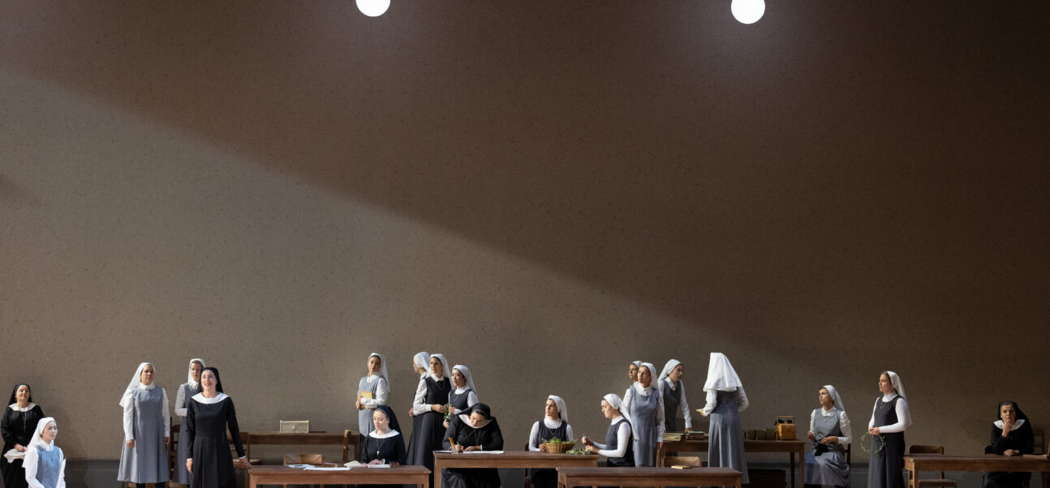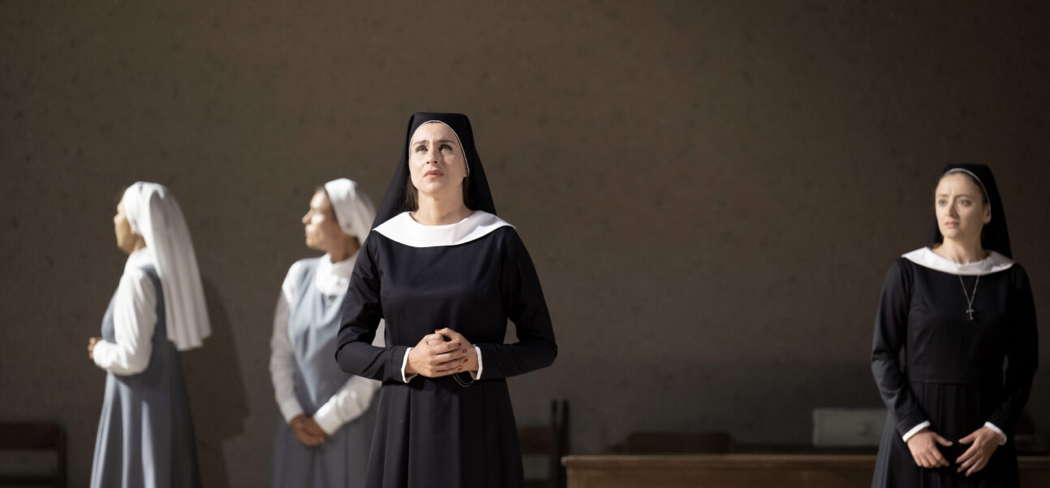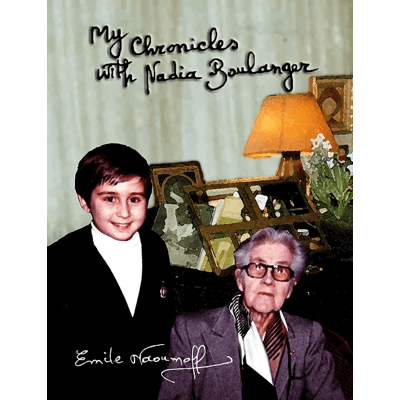 DISCUSSION: What is a work? John Dante Prevedini leads a discussion about The performing artist as co-creator, including contributions from Halida Dinova, Yekaterina Lebedeva, Béla Hartmann, David Arditti and Stephen Francis Vasta.
DISCUSSION: What is a work? John Dante Prevedini leads a discussion about The performing artist as co-creator, including contributions from Halida Dinova, Yekaterina Lebedeva, Béla Hartmann, David Arditti and Stephen Francis Vasta.
A Near-perfect Triptych
ANDREAS REY experiences Puccini's 'Il trittico' at the Opéra Bastille in Paris
From 29 April to 28 May 2025, Opéra Bastille in Paris, France presents a co-production (with the Salzburg Festival) of Puccini's Il trittico (The triptych), directed by Christof Loy and conducted by Carlo Rizzi. Three operas of different natures are all juxtaposed to demonstrate the breadth of the Italian composer's genius. Contrary to Puccini's own instructions, the German director begins the work with the comic opera Gianni Schicchi, continues with the verismo opera Il tabarro (The Cloak, based on Didier Gold's play The Houpelande) and finishes with the Puccinian opera Suor Angelica (Sister Angelica), allowing star Lithuanian soprano Asmik Grigorian to build up the dramatic intensity before ending with a climactic finale.
We must begin by saluting the excellent work of the director's team, namely set designer Étienne Pluss, costume designer Barbara Drosihn, lighting designer Fabrice Kebour and dramaturg Yvonne Gebauer, who give each opera a different atmosphere, inspired by a film genre.
To capture the atmosphere of the opera buffa, the German director drew inspiration from the Italian comedy films of the 1960s and 1970s. Here, the stage is the death chamber of the wealthy bourgeois Buoso Donati. The dead man lies in his king-size bed, his family eating pork by his side. Evening lighting softens the colours of Tuscany as time passes. Her family's costumes are indicative of their middle-class Italian provincial lifestyle.
One of the great qualities of this performance is the acting, which although fluid and different in nature for each opera, is perfectly assimilated. In the case of Gianni Schicchi, the heirs' characters, veiled and self-interested to the point of crassness, are rendered by the grotesque and jubilant exaggeration of their actions. They rummage through the furniture to find his will, and don't hesitate to steal the candelabras and a still-lit lamp from the hall console as if in libeccio, once Gianni Schicchi has become the owner and chased them out of his house. This exaggeration is used to enshrine almost outrageous moments, such as the dance of satisfaction when they find the famous document, or when the women rudely try to seduce Gianni Schicchi.
Unfortunately, as the voices were not yet broken in, the quality of the singing was not yet optimal in the secondary roles, so Rinuccio's monologue sung by the young tenor Alexey Neklyudov and the group scenes did not go down well with the orchestra. And soprano Asmik Grigorian did not quite manage to convey all the enchanting sweetness of O mio babino caro, still lacking roundness in the voice, even though her radiant uprightness was already beginning to make itself heard. She would make herself heard even more clearly in subsequent operas.
Georgian baritone Misha Kiria, however, gave a more than convincing Gianni Schicchi. Succeeding in blending a more than aptly truculent performance with a singing style that was at times dry, when he was ordering the heirs around, and perfidious in his insinuations, when he reminded the members of the deceased's family of the punishments for perjury, he embodied an authentic peasant who is not to be trifled with.
Another quality of this opera was the orchestra, which combined strings and brass, lyricism and narrative, comedy and seriousness, recalling both Puccini's Wagnerian and Verdian sources.
While Puccini's orchestration of Gianni Schicchi was inspired by the bourgeois operas of Richard Strauss and the comic operas of Donizetti, his next opera, the verismo Il tabarro, recalled the Pagliacci of his friend Ruggero Leoncavallo.
Here, the set is placed within gray walls, and its props - a barge from which sailors have pulled out furniture to create a small salon next to it - have no relationship to one another. An iron staircase to the left and a door at the back of the stage allow the characters to come and go.

A scene from Puccini's Il tabarro at the Salzburg Festival.
Photo © 2022 Monika Rittershaus
In addition to the sailors, Giorgetta and Michele, La Frugola and her companion, a couple of pantomimes comment on the drama. The lighting is cold. The whole thing floats in a gray, gloomy, nauseating atmosphere reminiscent of the grand-guignol from which it's taken, or a kind of sad Giorgio de Chirico close to Yves Tanguy. Here, the acting is more natural, more realistic and drier. The costumes are dull and dirty. Although the atmosphere is friendly, with the exception of Michele's interventions, it's not a pleasant place to be. The inspiration seems to come from art house or film noir.
The voices, much more assured than in Gianni Schicchi, followed the spoken language, as in Janáček, Debussy or certain operas by Richard Strauss. They do not embellish anything - quite the contrary. Asmik Grigorian as Giorgetta succeeded in changing the nature of her voice, moving towards a raw truth. She wasn't touching, but dry, true and hard. The voices of the secondary roles were also better: mezzo Enkelejda Shkoza, who played Zita in Gianni Schicchi, was clearer, stronger and rounder, perfect in her role as Giorgetta's friend, La Frugola. It was unfortunate that tenor Joshua Guerrero, though clear, seemed to push the greenness of his voice to make himself heard. He'll need to fortify himself further if he's to take on roles with such a modern conception of singing. But the real weak point of the vocal set remained baritone Roman Burdenko's Michele, whose lack of vocal colour struggled to convey the depression caused by the character's advancing age.
Fortunately, the orchestra, with its brittle, Janáček-like tones, its coldness and lack of auditory comfort, captured this opera's nauseating atmosphere. The Italian conductor, like the director, knew perfectly how to transform his strings.
Finally, Suor Angelica seems as much an Ingmar Berman short film as a Puccini concentrate. The cold, yellow, church-like lighting perfectly conveys a convent atmosphere. The lack of props on stage adds to the harshness of the setting.

A scene from Puccini's Suor Angelica at the Salzburg Festival.
Photo © 2022 Monika Rittershaus
Fans will debate whether this Suor Angelica is the best of the evening's three operas, so much so that everything seems in its place. Is it because this opera is the most Puccinian of the three, resting, like the Manon, Tosca or Madame Butterfly of Puccini's Illica and Giacosa period, on internal conflict and thus the choice of a woman's destiny, or is it because this opera is without male voices and thus without the imperfections of the singers of yesteryear? Whatever the case, the voices, relationships, setting and acting are ideal.

Lithuanian soprano Asmik Grigorian as Sister Angelica in Puccini's Suor Angelica at the Salzburg Festival.
Photo © 2022 Monika Rittershaus
The voices of the secondary characters are accurate, natural and expressive - as are their embodiments. Soprano Ilanah Lobel-Torres as Sister Osmina and soprano Lucia Tumminelli as Sister Dulcina, for example, never sounded forced, and were therefore perfectly touching. The confrontation between soprano Karita Mattila as La Principessa and Asmik Grigorian's Sister Angelica will always be remembered as a perfect success of tension, embodiment and drama. Karita Mattila's voice is as much an actress as her body. She portrays a lady steeped in tradition, facing Sister Angelica, who has sacrificed everything. Karita Mattila's singing was straight but supple, human but tough, like her role. Asmik Grigorian was ideal as the mother who learns of her son's death long after his passing, and who must once again sacrifice everything, including her life. She succeeded in transcending rigour, strength and the fire of her voice to reach directly for the emotion. She even made us forget the length of the drama's ending with this long, somewhat repetitive monologue, exuding her music so perfectly.

Asmik Grigorian as Sister Angelica (left) and Finnish soprano Karita Mattila as La Zia Principessa in Puccini's Suor Angelica at the Salzburg Festival.
Photo © 2022 Monika Rittershaus
The orchestra once again changed its nature, displaying the fine charm, silky colours and harmonious melodies typical of Puccini, as if to give a concentration of the Italian composer's orchestral genius.
An excellent evening. A near-perfect triptych.
Copyright © 19 May 2025
Andreas Rey,
Strasbourg, France





